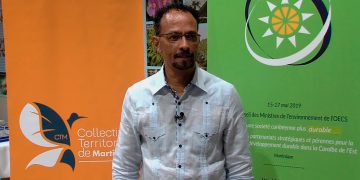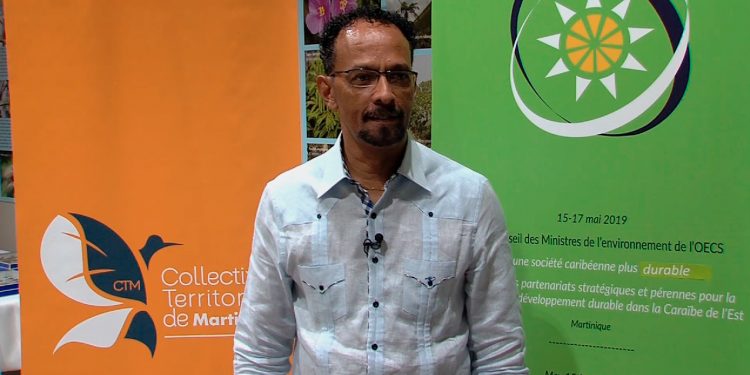MARTINIQUE – 3 important points were adopted at the meeting of May 15th and 17th :
-in terms of sargasses: joint mobilization, Martinique will communicate to the OECS countries the results of its scientific study, and will provide the images of European satellites
-in terms of energy: The OECS countries will take a model on how Martinique was able to reduce its energy consumption by 30%, the ministers were very impressed by this result
-finally, in terms of environment, the OECS countries want to adapt to their public sector, processes used by a private developer to achieve a “green marina”, that of the “Etang Z’ Abricot in Fort de France
Louis Boutrin, Martinique Regional Executive Advisor in charge of « Sustainable Development and Energy » welcomed these decisions wich are on the right side of consolidation of strategic and sustainable partnerships for the promotion of sustainable development in the Eastern Caribbean
«We are very satisfied to have received all the delegations of the OECS in Martinique for this 6th Council of Ministers of the Environment, usually we talk about economic issues, social issues, but sustainable development issues are very remote the concerns of our people
France Caraïbe Communication: «What is Martinique’s contribution to the environment and its Caribbean integration»
Louis Boutrin: “It is first the respect, then the solidarity and then the pooling of means, technological means, scientific means, how to optimize the energetic potentialities in the caribbean?
We have them, but we need to be able to exchange, to make things more interdependent, and in terms of technology, for example, the monitoring of Sargassum beds can be done today thanks to satellites and the fact that being in the European Union allows us to benefit from European technologies to be able to follow these sargasses and share with our Caribbean neighbours, to put in place common strategies for the good of our populations”
France Caraïbe Communication: “It’s the third time that Martinique has received a Council of Ministers of the OECS, is it the concrete sign of integration to the Caribbean”
Louis Boutrin: “It is at the same time a sign of integration but it is also a coherence with the public policies that we put in place; we have addressed health issues, then education issues and today environmental issues, so there is continuity and what we want to share with o ur neighbors in the Caribbean on the basis of mutual”


















